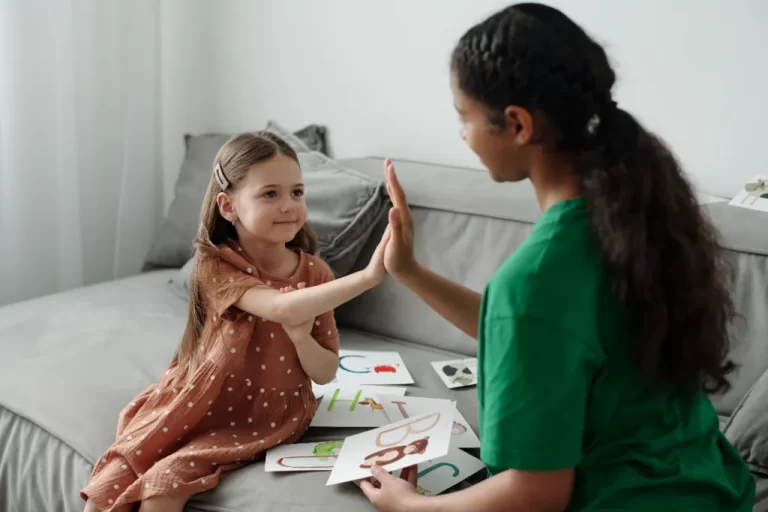Dementia and Symptoms
Sometimes, exhaustion and stress can affect memory, but becoming increasingly forgetful, especially between the ages of 45-65, could be an early sign of dementia.
Dementia is a neurological condition related to changes in the brain’s functioning. The brain consists of millions of connected neurons in constant communication. For a person experiencing dementia, the communication between the neurons is interrupted, and information is not sent from the brain to the rest of the body.
Memory loss is one of the most prominent symptoms of dementia. However, it also affects how people speak, feel and think, impacting their daily lives. It is essential to know that dementia doesn’t develop as a natural part of ageing. Although there is currently no cure, there are many practices and supportive treatments that can help people with dementia live longer and more fulfilling lives.
The earliest signs of dementia can be subtle and not immediately apparent. Some of the most prominent symptoms include: short-term memory problems, mood changes, reduced concentration and difficulty finding the right words with the proper context.
Paranoia Definition
Paranoia is the development of unrealistic fears of imminent harm and danger. People who face paranoia do not understand or believe other people’s explanations. It is founded on the suspicion of others and projected feelings of fear.
Some people experience paranoia due to certain mental health conditions, such as schizophrenia. However, it can occur as a result of delusion and can be a sign of Alzheimer’s disease and other types of dementia. Examples of paranoia include beliefs that others are against them or that someone someone taking their possessions.
The Link Between Paranoia and Dementia
Paranoia is a common symptom of dementia, especially Alzheimer’s, Lewy body dementia as well as vascular dementia. Paranoia involves irrational or false beliefs and suspicions about others intending to harm. For people with dementia, paranoia often arises because of the sudden change in perception and behaviour and the changes in the way the brain functions.
The link between paranoia and dementia can be noticed through:
- Suspicion towards family members and caregivers
- Belief in conspiracies and feelings of persecution
- Misinterpretation of environmental cues due to changes in perception and cognitive function
- Neurological changes, such as confusion, due to neurochemical imbalances and disruptions in neurotransmitter functioning
- Structural changes in the brain due to the accumulation of the beta-amyloid protein and the decline of the brain tissue in regions of the brain responsible for emotion regulation, perception and behaviour
- Changes in perception and the ability to accurately interpret sensory information
Early Signs of Paranoia in Dementia

Early signs of paranoia in dementia can be subtle, and many people may dismiss them as age-related challenges. However, paranoia can progress quickly and significantly impact people’s quality of life and the well-being of everyone around them. Symptoms may become worse when a person is feeling confused or experiencing delirium. It is essential to seek medical evaluation and support when changes in behaviour or cognition develop. Early intervention and supportive strategies can help mitigate the impact of paranoia and improve the well-being of a person with dementia and those around them.
Heightened Suspicion and Mistrust
Heightened suspicion and mistrust are among the most significant signs of paranoia. In the context of dementia, these characteristics can enhance challenges and lead people to develop elaborate false beliefs in conspiracies and untrue events. For some, developing suspicion about being targeted by others can increase defensiveness and withdrawal from social interactions. This can cause some individuals with dementia to prefer being alone and avoid the perceived threat from others, which further enhances feelings of loneliness.
Misinterpretation of Intentions
Misinterpretation of intentions is another common feature of paranoia due to cognitive decline and changes in perception that exacerbate people’s tendencies to misinterpret the intentions of others. Paranoia in dementia may involve a false belief while disregarding evidence to the contrary.
Addressing misinterpretation of intentions related to dementia requires a tailored and compassionate approach. Caregivers can do this by providing precise and consistent support, communicating and validating people’s feelings and concerns, and offering reassurance and support. Strategies like reality validation and reality orientation can be beneficial, but fostering a trusting relationship is essential for managing paranoia and enhancing well-being.
Distorted Perception
In dementia, people can experience delusions and paranoia due to distorted perception. Some individuals experience increased sensitivity to stimuli that they see as threatening, such as loud sounds or unfamiliar faces. Additionally, some people living with dementia may even experience hallucinations and delusions, such as hearing or seeing people who are not there. Dementia disrupts people’s perception and sense of time and space, which can further lead to disorientation and confusion.
Hypervigilance and Anxiety
Hypervigilance and anxiety are also some of the most common signs of paranoia in dementia, which refer to the enhanced state of alertness and response to perceived threats. Anxiety involves feelings of fear and unease, and for people with dementia, these two symptoms heighten paranoid beliefs and behaviours, which cause distress in day-to-day life. Hypervigilance and anxiety can disrupt sleep patterns, which further heightens cognitive difficulties and the overall daily functioning of individuals with dementia.
Supporting Individuals with Paranoia in Dementia
Supporting people with paranoia in dementia requires a compassionate and comprehensive approach that addresses people’s unique needs and challenges. Building a trusting and empathetic relationship is essential, and providing understanding, patience, and assurance can help people with their well-being.
Maintaining a calm and predictable routine can help people feel more secure and safe. Encouraging individuals to participate in enjoyable activities can also help people feel valued and build self-esteem. Collaboration with family and carers is crucial, especially in building a coordinated care plan to address people’s needs and preferences.
Establishing Trust and Reassurance
Another aspect of supporting individuals with dementia is fostering a positive and supportive relationship based on understanding and mutual respect. Carers should take the time to listen to their concerns without judgment and instead provide compassion. Communication should be reassuring and properly convey empathy and support. It is also helpful to offer information and education about dementia to help people with paranoia better understand their experiences.
Effective Communication Strategies
When communicating with individuals with dementia, it is essential to use methods and strategies that will foster trust, reduce anxiety and decrease the risk of escalating paranoid beliefs. For people with advanced dementia, this may be mitigated by using simplified language to convey your message and avoiding complex or abstract language. Approaching the individual with a calm and patient approach and offering reassurance can alleviate people’s anxiety and allow them to feel safe and cared for.
Creating a Calm and Safe Environment
Creating a safe and calm environment for people with dementia is essential for minimising triggers and reducing anxiety, which is why it is crucial to establish a daily routine that provides a sense of stability and security.


Consistency in meal times, bedtime, and daily activities can help reduce anxiety and confusion. It can be helpful to surround the individual with familiar objects and personal belongings that provide comfort and reassurance. Familiar items, such as photographs, favourite books, or cherished mementoes, can create a sense of continuity and security. Some people also find it helpful to designate a specific area within the home as a safe retreat for the individual when feeling overwhelmed or anxious. Ensure this space is quiet, comfortable, and free from potential triggers.
Dementia Care with Unique Community Services
Unique Community Services provides proactive support for individuals with dementia in the comfort of their own homes. Through our humanised care, we help individuals feel comfortable and secure, surrounded by their loved ones.
With our tailored care solutions and personalised care plans, we help people with dementia remain as independent as possible and live longer, fulfilling lives.
If you want to learn more about how our team can help, contact us today or visit our offices in Bristol, Manchester, and Leeds.













